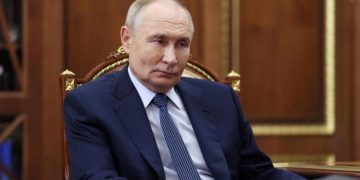Truth to tell by Nirmalya Deb
THERE has been significant dispute and debate of late on the question of religious conversion, and the volume and intensity of the entire discussion has been so loud that adding a few words wouldn’t add to our overall misery. One fact that the debate misses is that the right, and in this sense, an inalienable, integral right of the individual to practise and propagate his religion is something fundamental. He would naturally try to induce his family and kinsmen in due course to follow the precepts of a religion – this, basically, is what the right consists of. Now, if this much is granted to the individual then you grant him the right to do whatever he pleases with his right, and you have no way of stopping him. It is a problem that political societies as big and strong as Islam, Christianity, and Hinduism have grown by using this very right of self-perpetuation.

Why is this a problem? What is the harm in seeing the respective religions as origins of great political societies such as Hinduism, Christianity, and Islam, for instance, and civilizations with great creative energy and force in the fields of science, logic, and mechanics as well as political and economic governance and the sublime arts of literature and music? Why not review and appreciate their roles in the overall historical process of human cultural and political formation and the texts and intertexuality of history? For example, the history of the appreciation of the Quran and the Gita – philological, literary, cultural, religious, and philosophical encompassing the entire gamut of the human pursuits from music to the mechanical investigation of the universe is a great human endeavour to rediscover the past and affirm the great creative roles of these religions and their respective political societies and, of course, their cultures, civilizations, and creative endeavours in the arts and sciences.
Why not view the positive contribution of religion in the formation of human civilization as we have it today rather than harping on the historical conflicts that have been a part of the development of religions and their different forms in different periods of history and civilization? This is an important question because it seems the matter is one of choice. Why not focus on religion’s positive and social contributions instead of focusing on the connection of authority and text in religion, the inevitability of revealed voice in religion as opposed to logic, and, therefore, the inevitable outburst of self-perpetuation? Now, as we noted, if we grant the political right of self-perpetuation to not only religion but any ideology in a sense, i.e. an organized body of thought and practice, we render ourselves as a political society dispossessed of the political means of countering that social and historical expression of self-perpetuation of an ideology that rests on revealed voice as supreme authority for ransacking the globe, for instance; we are, it would appear in the context of the historical development of religions and a close study of the conflicts inherent in the progress of self-perpetuation, incapable as a society to rationally counter the accumulating political strength of religion and the inevitability of conflict therein in a plural globe. Only a study of the conflicts can point to the intensity of the problem.
Take political Islam, for instance. If we grant it the absolute right of self-perpetuation – it wouldn’t, however, care for the liberal society at large to grant it that right, as it believes that the right in question has already been granted by the Holy Book – it would be impossible, thereafter, to obstruct it from attaining civilizational might and political and military force; at least, civilization would lose the argumentative force of countering its logic of the right of self-perpetuation – in the Islamic and Jewish sense a brutally physical right of demographic perpetuation and expansion. What answer does political theory have to this problem? First of all, we have to look at a dispassionate appraisal of the problem at hand rather than following the logic of the Anglo-American establishment, for example, that uses a very different conception of rights in the scenario of western societies and cares a fig when it comes to Oriental societies and cultures. Such arrogance can only exacerbate conflict. The tradition of liberal-democratic political thought objects to fundamentalism and embraces pluralism in only a very formal sense and, therefore, it would be futile to appraise the problem the way in which the hegemonic western establishment would have us.
The issue of proper use of power or authority is, however, a question that liberal-democrats have posed when interrogating Islamic society, states, structures of power and civil societies, and how they are integrally associated with religion – the authority of religion granting the divine right of political expansion and empire-building. However, western liberalism and democracy is tarred by centuries of oppression, imperial expansion, monopoly of world domination, and brutal rule and exploitation that render it unable to join the discourse of the inherent right of self-perpetuation of ideology and grant a logically impartial verdict against Islamic zealotry. The hands of the western colonizers were soiled with the blood of indigenous people across the globe for centuries, and their successors have no authority to claim that the great Rights of Man and the empire of liberty and western democracy is the sole political dream of humankind on this planet.
However, if we forget the history for the moment or the ethics of the debate of self-perpetuation of ideology and the different positions taken up by the different civilizational forces and religions, although it is worthwhile to note that it is well-nigh impossible to conduct the debate outside this scenario, and consider the remnants of the theory of misuse of power that liberalism generally claims to prove its superiority vis-a vis other forms of political power associated with other religions or civilizations, i.e. the bare skeleton of the theory and pit it against the absolutist, scriptural, monarchical rule of theological Islam, it would be improper to do so. That is because, first of all, western political and civilizational formations have seldom cared to conform to theory in their historically expansionist political drive to colonize the globe, and also because it is weak logic to ask somebody to do something which you yourself don’t conform to. However, we would disregard both these objections, as we said we would go ahead sans the historical dimension – which is, of course, impossible. The logic of misuse of authority and power granted by scripture is weak because once you grant the right of self-perpetuation – and this is important – the greater part of political society loses control over the social process of the manipulation of expressions of ideology, and any hindrance in the development of free expression, in political theory, is certainly coercive.
This is not to mean that rights don’t entail obligations in political society, but creative expression, which is so often associated with religion, and not merely the passive creativity of the literary artist or the scientist the operations of which are in textbooks and laboratories, but socially vibrant living creative forms like civilizations and cultures, demand full and free expression. If this is a natural political demand in the case of Christianity, it is a genuine demand in the case of Islam too. Authority used for self-aggrandizement, self-enrichment, expansion, accumulation, control, dominance, and perpetuation are integral to any kind of creative, collective expression. How to control this expression rationally is the task of political theory shorn of the historical corruption of contradictoriness and self-denial.
But we have one other way of critiquing the notion of self-perpetuation that we noted is woven into religion or any form of power-hungry ideology in society. We can, for a change, question the very legitimacy of revealed, scriptural knowledge, and the tenets of action prescribed by the scriptures. We can claim, as the moderns have claimed, and by moderns we should mean great personalities in all religions, that scientific knowledge of the workings of the universe and the heavenly bodies follow a pattern of their own that have no connection with revealed knowledge but have a great role to play in human affairs. Therefore, knowledge of the natural world and the universe is far more important than unsubstantiated knowledge of the scriptures, which can at best be treated as historical objects of study. This scientific attitude characteristic of the modern age can rightfully critique the notion of self-perpetuation of religion and dissect the network of power and authority embedded in theology and morals. This is the scientific programme that the debate concerning religious conversion misses because it questions the political right to perpetuation, which is, as we have seen, a political debate that cannot legitimately contradict the motive of aggrandizement of religion or ideology.






































